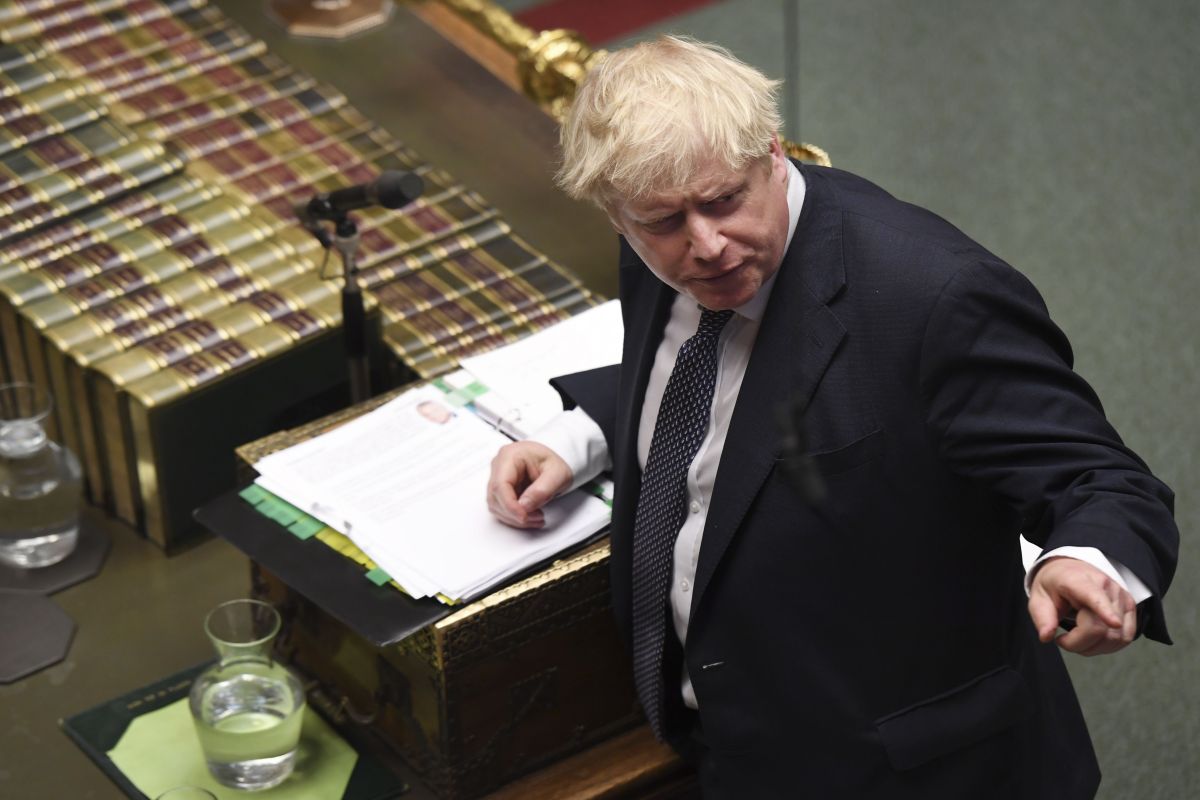Brexit pangs
Brexit, once hailed as a grand natural experiment for economists to dissect the repercussions of leaving a low-friction trade environment, has proven messier than anticipated.
The Prime Minister is said to have bluntly told the Chancellor of the Exchequer, Sajid Javid of Pakistan origin, that he wanted much closer control of Treasury decisions.

UK Prime Minister Boris Johnson (Photo: IANS)
Boris Johnson has beefed up his grip over governance. Post-Brexit, Thursday’s reshuffle of the British cabinet has swiftly been debunked as a “cabinet of courtiers”. While this may be the perception of the Prime Minister’s detractors, there is little doubt that buoyed by the fruition of Brexit, he has reaffirmed his increasingly strong grip over the government. The reshuffle signifies a defining seizure of power by No. 10 Downing Street. It has gone beyond a mere rejig of the team at Whitehall.
It has turned out to be a major event, the striking feature being the confrontation as it were with perhaps the most powerful department, pre-eminently the Treasury. The Prime Minister is said to have bluntly told the Chancellor of the Exchequer, Sajid Javid of Pakistan origin, that he wanted much closer control of Treasury decisions. Towards that end, the new team of Treasury advisers will be answerable to No. 10, not to the Chancellor next door in No. 11. Mr Javid put up a fight for his department’s autonomy, and as it turns out, lost.
Having got the unpalatable message, he resigned before midday, and thus became the shortest-serving Chancellor in 50 years. The relationship between the Prime Minister and the Chancellor has traditionally been pivotal to governance. That axis has been smashed within two months of an election victory and less than a month before the defining budget statement of the new Parliament on 11 March.
Advertisement
It is hard not to wonder whether there was a rift in the Conservative lute, notably between Mr Johnson and Mr Javid. Suffice it to register that No, 10 under Mr Johnson and his chief adviser, Dominic Cummings, are demanding total control of the government. Independent- minded as he is, Mr Javid has differed with the Prime Minister on spending issues. By forcing him out, and replacing him with Rishi Sunak (of Indian origin), the government now has a less experienced Chancellor, rather than an assertive head.
Another possibility is that Mr Johnson seeks a higher level of public spending in the budget, whereas Mr Javid has been in favour of fiscal orthodoxy and austerity. Anxiety to enforce centralist control and differences over spending have arguably hastened the Chancellor’s exit. If next month’s budget, to be presented by Mr Sunak, marks a distinct departure from the matrix of austerity, it would be significant.
Mr Johnson appears to be gearing up for postausterity Conservatism. Just as Brexit has opened a new chapter, so too has the third election in as many years. Apart from strengthening his grip, we do not know whether he has a wider strategic purpose; yet we do know that he has jettisoned the Conservative praxis of balancing the factions within, all too evident during the dispensations of David Cameron and Theresa May.
Advertisement